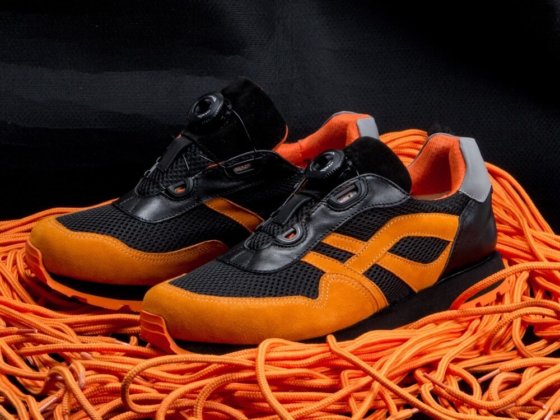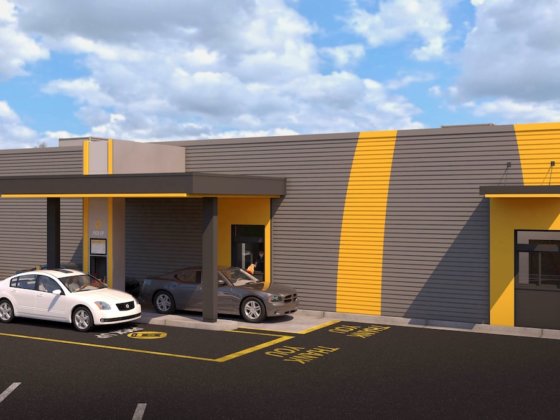Behind every legendary company there is always a legendary person who most often founded this company.
The most talented person, hardworking, with outstanding abilities. It was these people who decided the fate of famous brands. Louis Renault was such a person.
He is often referred to as the "French Ford", alluding to the fact that he put France behind the wheel, like Henry Ford. put America behind the wheel. But if any American pronounces the name of Ford with pride, the French tried to forget the name of Renault as much as possible. And this despite the fact that during the First World War, he received the honorary title of "savior of France" among the people.
Louis was born on February 21, 1877 in Paris. His family was quite wealthy, owning their own business - a factory for the production of various haberdashery products. But little Louis was much more than “rags”, attracted by technology. He was not the only child in the family and grew up under the care of loving elders - two brothers and two sisters. The father tried to give his son an excellent education for those times, but in vain - Louis did not want to study. As a result, he was drafted into the army. It is difficult to say whether army discipline has benefited the future creator of legendary cars. About how he served, little is known (and few people are interested).
After serving, Louis returns home and immediately acquires a De Dion-Buton car. Frankly, a car in the full sense of the word, this creation could be called only with a certain stretch. A sort of self-propelled three-wheeled cart. Louis eagerly took up her alteration. The talented Frenchman, who does not have a single diploma, managed not only to remake the purchase, but, in fact, to create a fundamentally new device. First of all, the resulting creation was four-wheeled. And most importantly, it was the first to use a direct transmission, when a cardan shaft was used instead of unreliable chains. With this invention, Louis made a real revolution in the automotive industry. The miracle of technology successfully withstands the “tests” on the rather steep Montmartre street, which attracts the close attention of potential buyers. As a result, Louis decides to start his own company. In this he is helped by brothers who already have rich experience in business. As a result, the world will learn about the Renault Brothers company, in which Louis was the main person.
 Renault Voiturette - the company's first production car
Renault Voiturette - the company's first production car
Renault received more than 500 patents in total. He first used a fully enclosed body, as well as a steering wheel, instead of bulky and not very convenient levers. It was on his machines that the turbocharger was first used. Simply put, it is impossible to overestimate the role that this man played in the building car business.
Victories in the field of business follow one after another. The company is developing rapidly, releasing more and more new models, one better than the other. The victories of these crews in motor racing also played a significant role. Although it was auto racing that claimed the life of Marseille's older brother, it provided Renault with excellent advertising and an excellent reputation. At 27, Louis becomes the richest car manufacturer in Europe; the glory of his production is sung both in France and abroad. For example, a branch of the company appears in Russia. The "golden era" of Renault begins.
The First World War played an even greater role in the formation of the company. Being a perspicacious man, Louis foresaw the likelihood of war and began to expand his production in the direction of military equipment in advance. When the war began, production is completely switched to front-line needs - engines, trucks, tanks. Tanks Renault FT-17 proved to be just great. And the story, when, thanks to a hundred Parisian taxi cars (and these were Renault models), they managed to transfer an impressive number of troops and stop the advance of the Kaiser troops on Paris, has become a real legend. It was then that ordinary people called Louis "the savior of France." There is some truth in these words - after all, the fall of Paris would entail the fall of all of France. But it seems that Louis was thinking not only from the point of view of a patriot. After all, the war brought enormous profits. Did he want victory over Germany? Naturally! But in addition to patriotic feelings, the voice of an industrialist spoke in him, and he was completely devoted to his work. Needless to say, after the war, Renault changes its logo - now it proudly depicts a tank.
 Renault FT-17
Renault FT-17
The period between the wars is of little interest. Louis, who has become a millionaire, is constantly in search of earthly entertainment. His love affairs surprised even the worldly-wise Parisians. The founder of the company was no longer young, but he still had sufficient health to allow him such antics. This continued until the outbreak of World War II.
The defeat of France in World War II happened so quickly that many were shocked. With a lightning strike, the Nazi troops, in fact, marched on a victorious march, encountering no serious resistance anywhere. Well-coordinated Germans traveled up to fifty kilometers a day, leaving no chance for the French, whose commanders could not agree among themselves and organize any acceptable defense. It took about two months to capture the country and almost completely destroy its army.
According to some reports, even before the start of the war, Louis did not believe that France would be able to resist. There is evidence that even then he began negotiations that the occupiers would not touch his factories. And so it happened. Before the liberation of France, Renault factories were actively working for the Nazi war machine. Leadership positions were given to the Germans, who had previously worked for glory Mercedes. Tanks, once a symbol of the country's heroic defense, were now used by the Germans to patrol towns and quell uprisings.
After the collapse of the fascist regime and the coming to power of the legendary General Charles de Gaulle, the hatred of the masses turned not only against yesterday's enslavers, but also against those whom they considered traitors. And there were many of them, and the vast majority of them were people of high society. Louis Renault was one of them. The aged inventor was thrown into prison, where he spent several months until he died in 1944, before the end of the war. The cause of his death is said to be the brutal beatings that yesterday's savior of the motherland was subjected to. According to other information, Louis was nevertheless released, but his health was severely undermined by the prison cell and after living at large for several days, he died. At the funeral of yesterday's millionaire, only his close relatives were present.
But was it worth it to condemn this man so severely? The decadent spirit of the French ruling elite, who almost admired the Nazi regime, then hovered over the country. Holy faith in the insurmountability of the Maginot line and fear of their own people (the ghost of communism in those years was not an empty phrase) played a role, destroying their will to serious resistance. Knowledgeable people probably knew perfectly well how the war would end for France. Louis only wanted to keep his production, his empire, which then employed about 30,000 people. Older, he could not drop everything and run, or just watch the collapse of his life's work. An agreement with the Nazis provided him and his factories with immunity. However, the factories were still bombed. But only from the side of the allies (after one of these raids, Louis Renault had a nervous attack, after which he could no longer talk normally). By the end of the war, only a small part of them had survived. The company was nationalized. At the same time, none of Renault's relatives received any monetary compensation.
 Renault 4CV (1947) - the company's first post-war production car
Renault 4CV (1947) - the company's first post-war production car
On the official website of Renault, a minimum of information is devoted to the founder of the company - exactly as much as historical facts require. It is impossible to completely erase the memory of such a person, but the liberators tried to do it as much as possible. And, it seems to me, completely in vain.
Having become a state-owned enterprise, Renault not only survived, but also became one of the leading car manufacturers in the world. But this is a completely different story, in which there is no place for Louis Renault.










